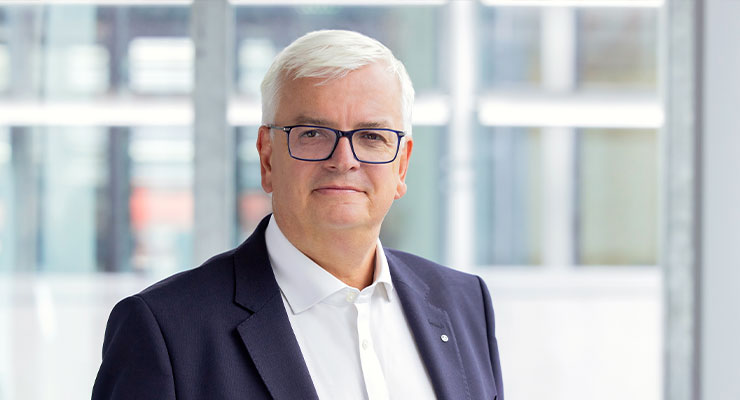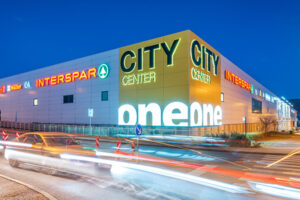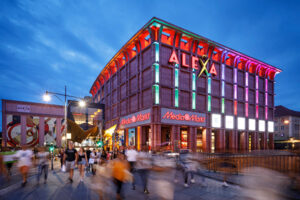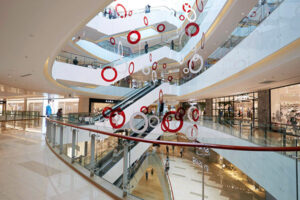ACROSS: Generally speaking, how important are partnerships in today’s shopping center world?
MARCUS WILD: Shopping centers have long since evolved from being mere sales generators. The evolution of the shopping center world has also changed the nature of relationships. Virtually everything that we do is partnership-based. Our primary goal is to make our centers the top destinations in their respective catchment areas. If you want your center to attract the best tenants, you have to adopt a partnership-oriented approach. Some of the leading concept partners in Austria have signed a quarter of their existing contracts at our centers. They include Zara, H&M, Media Markt, and numerous others. That’s a clear indicator of good partnerships.
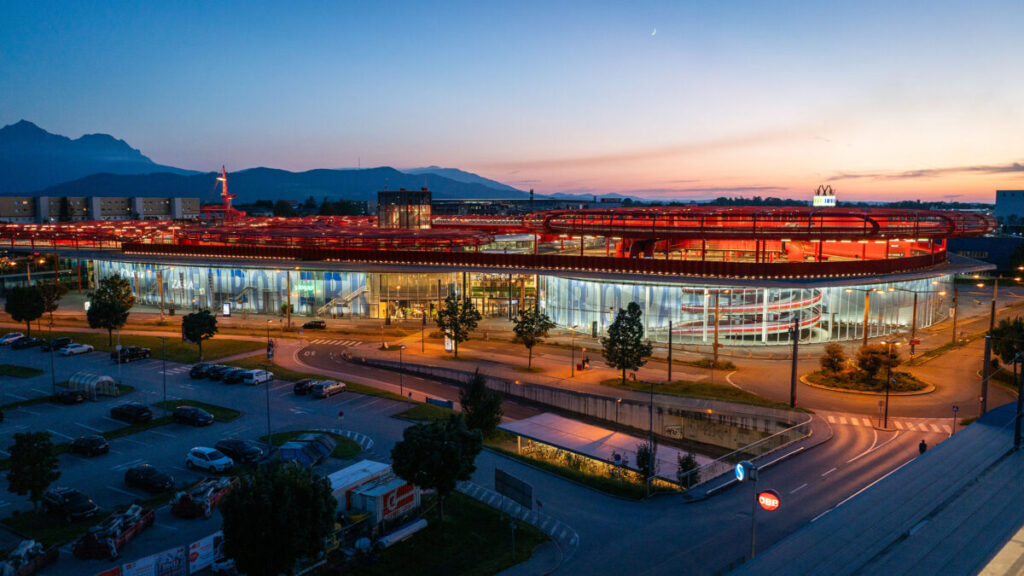
ACROSS: What is your definition of partnership?
WILD: We define partnership as an in-depth understanding of our retailers’ business models and their needs. The essence of this partnership approach is that we conclude fair, performance based rental agreements, for example, revenue based rental agreements as well as a number of others.
ACROSS: Given its origin, the basic DNA of your company is that of a retailer. Has that resulted in greater mutual understanding?
WILD: Even though SES is a strategic business unit in its own right, it is integrated into the SPAR Group. As such, it benefits from the opportunities available to the Group and has been shaped to a large extent by the values and philosophy of a food retailer. SES is rooted in retail and has always been more focused on long-term relationships than on short-term capital markets. It consistently and successfully pursues a strategy of organic growth. Needless to say, partnerships are subject to fluctuations; sometimes one-party benefits more, and sometimes the other one does. On the whole, however, we are all better off once we have an understanding of the other side. That doesn’t mean that we don’t have high performance expectations. Our retail partners expect our centers to run like clockwork, and we have to ensure that we have the right mix of tenants. However, we can only achieve the optimum together. Specifically speaking, that means we have to understand the needs of our retail partners and be able to give them lead times when necessary.
ACROSS: The entire industry has come to this realization. The issue of partnership-based interaction has grown in importance across the board.
WILD: Of course, we could all stand to develop a bit further. Innovation is much more easily achieved in partnership. For example, if you are overhauling your food and beverage area and introducing new concepts, you can’t afford to be a distant landlord. You have to be there for your tenants, actively supporting them with building services, for instance, or helping them with start-up investments. The success of good partnerships can be felt and seen immediately: They grow. As I said before, the evolution of retail is happening at a rapid pace. At the beginning of the 2000s, 90 percent of stores were multi-brand; today, 90 percent of stores are mono-brand. That requires a different approach and a deep understanding of how those brands operate.
ACROSS: More and more partnerships are being formed with companies in other sectors.
WILD: We have to respond to the changes that are taking place in the world of values, to issues such as digitalization and demographic change. The world of retail has changed since the pandemic, which is evidenced by the fact that gastronomy has become more important and more entertainment concepts are needed. If we want to create vibrant centers, given the recent change in values, we have to be open to addressing the core areas of societal concern. Health and wellness are key social issues. That’s why entering into a partnership with a so-called health park, such as the one we have concluded with the Vinzenz Group, one of Austria’s largest healthcare groups, is the right step to take. I firmly believe in this type of joint venture as well as others like it.
ACROSS: Does that also change the definition of a shopping center?
WILD: Such partnerships will by no means become the core activities of shopping centers. The core will remain unchanged: retail, gastronomy, and services. Shopping centers themselves are changing, but they’ve been doing so for quite some time. That evolution becomes particularly clear when we look at the retailers themselves. No longer are they traditional retailers; they’ve become highly modern brand distribution systems – across the board. Brick-and-mortar retail is one channel in the system that must be optimally served, but is also, to a certain extent, in competition with online retail. Our job is to provide the perfect environment, in other words, an attractive location in a prime area. They are no longer regarded as traditional shopping centers, but rather as districts in their own right, with a range of different uses. That’s also reflected in our portfolio. Our Q19 center in Vienna was given its name to clearly demonstrate our focus on the “quarter aspect”.
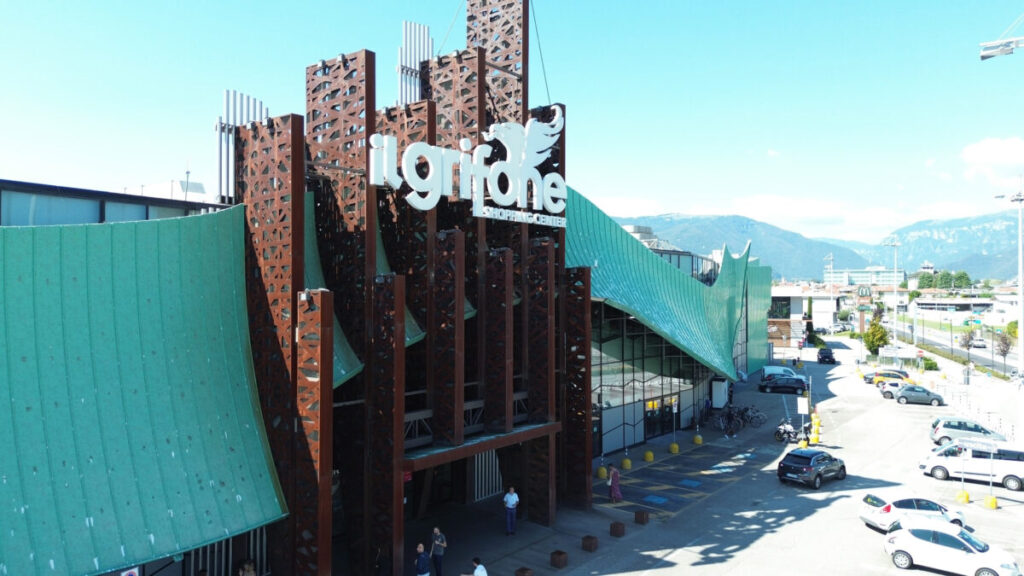
ACROSS: Let’s take a closer look at one of your new partnerships, namely the one with the Vinzenz Group. What are your joint long-term plans?
WILD: As I see it, the value of a shopping center also lies in meeting the footfall-generating habits of customers in the best possible way. That’s why focusing on the important issue of people’s health is in our best interest. The Vinzenz Group, which stands for reliability and quality, is the right partner for us in this respect. Our goal is to develop health parks at as many suitable locations as possible, thereby strengthening regional healthcare provision in the long term. However, we are not prepared to disclose exact locations yet.
ACROSS: Do such partnerships also ensure that people stay at the centers for longer periods of time?
WILD: Our retailers will certainly feel an effect, as the people who make use of the health services will also go shopping. A greater effect will definitely be felt by health food stores, pharmacies, sports retailers, and restaurants. The center will become even more of a meeting place. Transport connections and quality of stay are prerequisites in this respect.
ACROSS: What sectors do you have in mind when it comes to other potential partnerships?
WILD: Generally speaking, any cooperation that will help us successfully overcome the current social challenges in the best possible way is welcome. The energy industry is certainly an area of interest. Parking and the provision of e-charging stations are particularly important issues for our Group.
ACROSS: Would creating a stronger link between the hotel and retail asset classes be the next step, or even a parallel one?
WILD: The potential for synergy is quite high, and we are already actively working on that issue. It all begins long before hotels can be integrated into the centers. It starts with how we regard the customers at our centers – as guests! The service points at our INTERSPAR stores, where information is provided or complaints are handled, have always been called “reception desks”. Many former hotel managers now work in center management and have brought their experience in the hotel industry to the table. Strategically, a stronger link between retail and the hotel industry would be very promising. However, there are two challenges in the DACH region, in particular. Firstly, the regulatory requirements imposed by cities often leave little room to maneuver. Secondly, hotel operators in the higher price segment are particularly cautious. Luxury hotels only enter environments that are clearly oriented towards luxury.
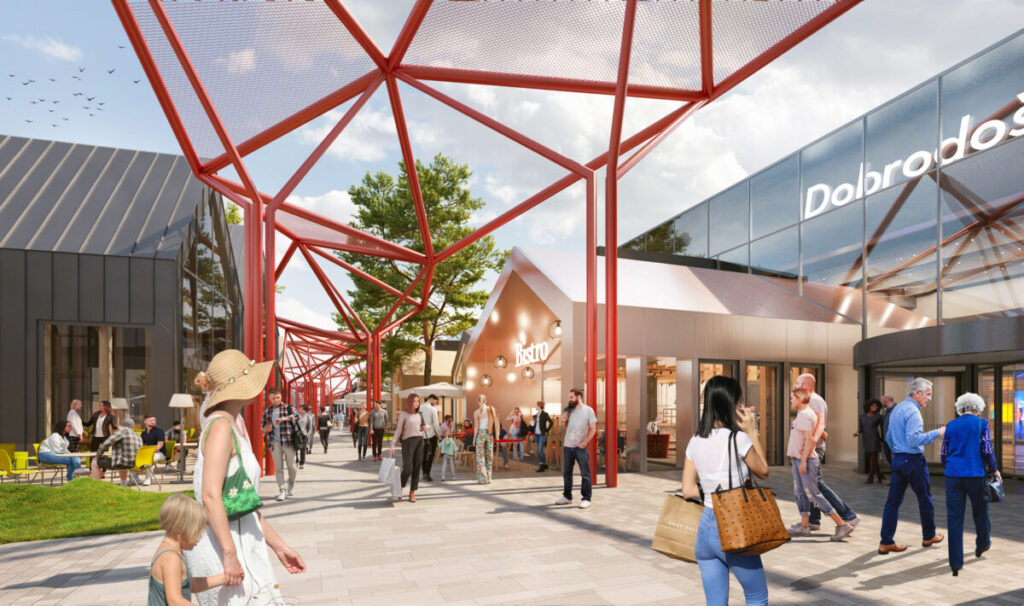
ACROSS: Is the shopping center business in Central Europe struggling with the luxury concept?
WILD: In New York, I was impressed by how many luxury items were available at shopping centers. The same can be said for Eastern Europe, and it works. In contrast, there is not a single shopping center in the entire DACH region, for example, that has a luxury section. While luxury is an area of opportunity, it also presents a challenge, as luxury providers require very specific surroundings. We would like to grow in that field, but the conditions and the concepts have to be right. Luxury requires an almost visionary approach – definitely not “more of the same”. Unfortunately, that’s exactly what many shopping centers currently represent – partially due to the fear of vacant space.
ACROSS: Don’t luxury brands work well at outlets?
WILD: They certainly could work well – outlets definitely have the conceptual prerequisites; however, the discount-oriented, non-authentic quality of stay is in direct conflict with luxury. In the current overall economic environment, discount outlets are attracting slightly more customers and generating higher sales. However, I am currently more interested in the fact that the LVMH Group has joined Value Retail. The fact that the company that owns the most luxury brands in the world has become active in that area is quite noteworthy and is relevant to anyone with an eye on luxury.
ACROSS: SES centers are committed to continuously working towards a high level of quality. With that in mind, are you concerned about the increasing use of discount concepts at European centers?
WILD: Not necessarily, because the demand is there. There are, however, some concepts that are not good for the shopping center industry. Generally speaking: Downtrading is always easier than uptrading. Therefore, it’s always important to keep an eye on the long-term consequences.
ACROSS: Finally, what are some of SES’s current highlights?
WILD: Among others, the renovation of the IL GRIFONE center in Italy, which we acquired last year, is a major project. We are currently working on ensuring that the center is brought up to a level that is worthy of SES. Other significant projects include the refurbishment of KING CROSS in Zagreb and, of course, the expansion of EUROPARK in Salzburg.
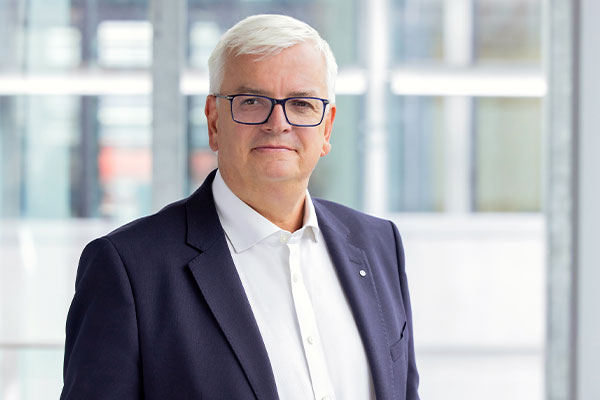
Marcus Wild
Marcus Wild is a Member of the Executive Board of SPAR Group Austria

